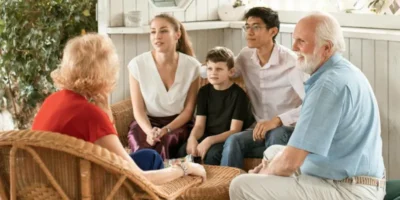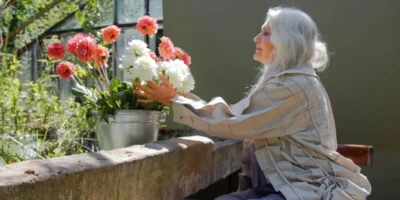What is the best way to know when to potty train a child? Our guide outlines what age to potty train a child and steps to potty train them.
Find more parenting and children guides, tips and advice
Out of the diaper – and up on the potty: Here we will tell you when you should start potty training with your child and how you can easily get it diaper-free.
If I can believe what my parents told me, when I was one and a half years old I was dry. Of course, as they say, this was due to the cloth diapers I had to wear. Today there’s a variety of cloth diapers that may make potty training easier, as welL. But no matter whether it was due to the cloth diapers or whether it is true or not, parents should always be aware of one thing when potty training with their children: There is not one point in time when the child has to be dry.
Parents often put themselves under pressure when their offspring starts school at two or three years old and is still wearing diapers. But that is completely unnecessary. Every child has their own pace to get dry.
When to potty train a child
Children who are used to their diapers need to be aware that in order to be dry they have to learn to use the potty. That sounds banal, but that is exactly the crucial point to successfully become diaper-free. With two to two and a half years, so when children begin to climb and descend stairs alone, the offspring are physically and psychologically able to perceive their own bodily functions. This is the point at when to potty train a child and you can safely begin potty trainingwith confidence.
Just watch your child. If they are interested in seeing you or an older sibling or older children going to the bathroom in kindergarten, then offer to do the same for you or the other child. Put him in a potty or get a kid’s toilet seat. Give your child the opportunity to use the bathroom, but don’t put pressure on them.
The golden rule for potty training: stay relaxed!
At some point every child gets dry. For some it goes faster and other children take longer. Don’t let anyone tell you that your child is ‘really slow’ at potty training. Every child has their own pace to get dry.
Get the child interested in the toilet. Explain that everyone goes to the bathroom. Take the child with you when you need to go to the bathroom. Small children especially like to imitate things. In potty training, it can also be promising to put the child on the potty or the children’s toilet seat at their own time. Habit and routine can make it easier for your child to get dry.
The first few times your offspring will react curiously and want to know what they have left in the pot. But if your child wants to touch the big or small business, calmly explain to them that you don’t do that. However, under no circumstances should you say that it is ‘dirty’, as this will give your child the impression that their body is something ‘negative’, which can make them feel guilty .
If the offspring has left their business in the potty at some point (and that can take a few days despite regular training), then you are welcome to praise your child for it. Show him that you are proud of his achievement.
How does my child stay dry at night?
If your child can manage without a diaper during the day, that does not mean that they can do without their diaper at night. While children are dry during the day at an average of two and a half years, things often only work out at night when they are three. But here too, the key to success is potty training properly and knowing when to potty train a child.
If your child signals to you that they want to go to bed without a diaper even at night, be sure to comply. Yes, it will probably go a little wrong in the beginning and yes that means a little more work for you too, but it is work that is really worthwhile and that will quickly make you both proud.
In order to ensure that children stay dry even at night, it is important to bring a certain routine into this too. Try not to drink anything, or only a little, about an hour before going to bed. If your child can only fall asleep with a bottle, then the first thing you should do is work on this habit before giving up the diaper.
When you finally start the ‘getting dry at night’ endeavor, try this: After the bedtime story, and just before bed, give your child one more go to the bathroom. If it has to be done again, very well. If it says it no longer has to, don’t pressurize it. Praise it for trying and put it to bed.
When you finally go to bed a few hours later, it’s best to put your child back on the toilet or potty, no matter how drowsy they may be. If you persuade them well and encourage them to pee again, it will.
After a few days of following this routine, you can try to let your child sleep through the night (unless they wake up themselves because they have to). If there are any small mishaps, it is best not to comment on them in any big way. A ‘this can happen’ is all you have to say.
And the cot and mattress can easily be protected with special rubber or molton pads. You can easily wipe or wash them if something goes wrong.
Avoidable potty training mistakes
Cleanliness cannot be enforced. If the child feels pressured while getting dry, disturbances can occur. This can result in increased wetting or constipation.
You should be careful not to scold your child if they don’t want to go to the pot or the toilet. The step into a diaper-free life is a huge one for the child. Instead of scolding them, encourage them. Make it clear to him that it’s great to grow up and be able to do without the diaper.
Don’t overwhelm your child with too many changes. If your child’s little world gets upside down for a certain occasion (birth of a little brother or sister, new day care, move, separation, illness, death of a relative …) it is too busy looking for new landmarks and therefore not receptive enough to internalize the initially complicated toilet ritual. A small change of location (with grandma or on vacation), however, sometimes works wonders.
Admit to your child that even if they have been diaper-free for a week, for example, they can sometimes go a little wrong. Children simply forget that they have to, for example when they are absorbed in a game. So always have extra clothes for them with you, especially at the beginning, and get your child used to going to the toilet before leaving the house.




